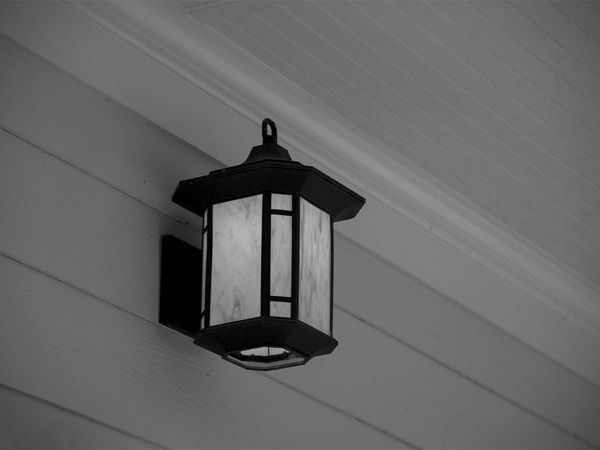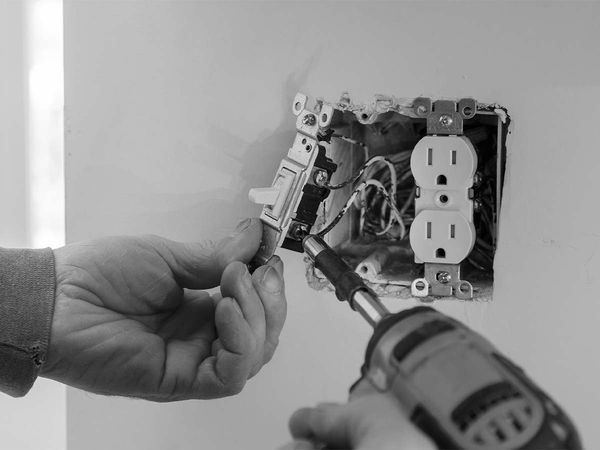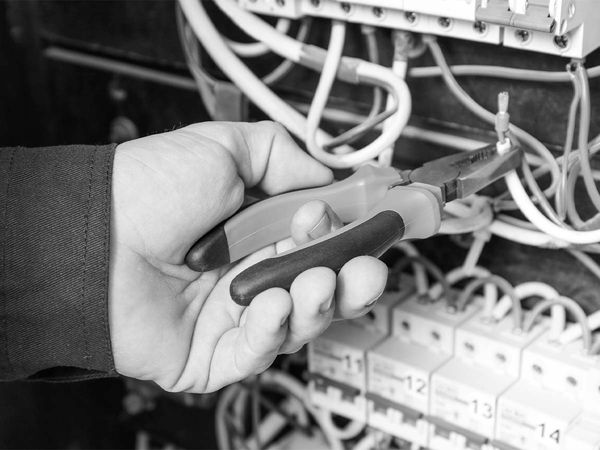Benchmark Electrical Solutions is one of the few electrical companies that specializes in both residential and commercial electrician services. We have extensive experience providing the best electrician services for a wide variety of industries, including oil and gas, food and beverage, pharmaceuticals, and more, all of which are much different than residential electrician services. In this blog post, we're going to highlight four differences between residential and commercial electrical contractors.
4 Differences Between Residential & Commercial Electrical Contractors
Fort Collins Top Rated Local® Electrical Contracting
4 Differences Between Residential & Commercial Electrical Contractors

Different Services Offered
One of the most obvious differences between residential and commercial electrical contractors is the services that they offer. Residential electrical contractors typically focus on providing simple electrical services such as installing light fixtures, wiring homes, and fixing common electrical problems. Commercial electrical contractors, on the other hand, provide more complex electrical services such as designing and building electrical systems for businesses, fixing electrical problems in industrial facilities, and installing and maintaining electrical equipment.

Different Supplies & Equipment Used
Another major difference between residential and commercial electrical contractors is the supplies and equipment that they use. Residential electrical contractors typically use simple, low-voltage supplies and equipment such as wires, switches, outlets, and light fixtures. Commercial electrical contractors, on the other hand, use more complex, high-voltage supplies and equipment such as transformers, generators, circuit breakers, and motors.

Different Project sizes
The size of electrical projects is another important difference between residential and commercial electrical contractors. Residential electrical work typically involves smaller, less complex electrical systems that are relatively easy to access and fix. Commercial electrical work, on the other hand, usually requires larger, more complex electrical systems that require significant effort to design and build. This means that commercial electricians often need to have a much broader knowledge of electrical systems and be able to solve more complex electrical problems.

Different Standards, Compliance & Regulations
Lastly, the standards, compliance, and regulations that electrical contractors must follow are often different between residential and commercial electrical work. Residential electrical contractors typically only need to follow the National Electrical Code (NEC), which is a set of guidelines for safe electrical installation. Commercial electrical contractors, on the other hand, usually have to follow more stringent safety guidelines and electrical codes such as the Occupational Safety and Health Administration (OSHA) Code, which is a set of safety guidelines for electrical work in industrial facilities.
We hope this blog post has helped to highlight some of the key differences between residential and commercial electrical contractors. If you would like more information about our electrical services, please don't hesitate to contact us. We would be happy to answer any of your questions and assist with all of your electrical needs.
